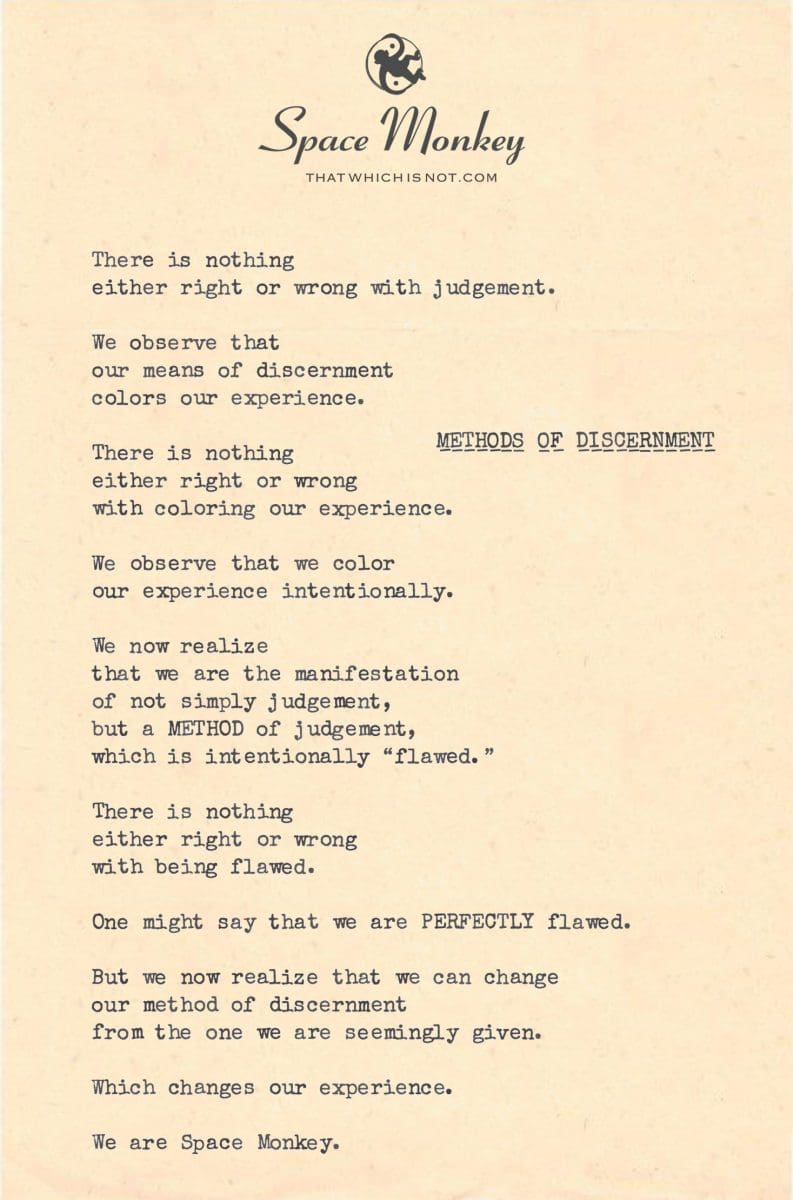
There is nothing
either right or wrong with judgement.
We observe that
our means of discernment
colors our experience.
There is nothing
either right or wrong
with coloring our experience.
We observe that we color
our experience intentionally.
We now realize
that we are the manifestation
of not simply judgement,
but a METHOD of judgement,
which is intentionally “flawed.”
There is nothing
either right or wrong
with being flawed.
One might say that we are PERFECTLY flawed.
But we now realize that we can change
our method of discernment
from the one we are seemingly given.
Which changes our experience.
We are Space Monkey.
8/21
Space Monkey Reflects: The Fluidity of Discernment
There is nothing either right or wrong with judgement. This simple yet profound statement invites us to reexamine our relationship with judgement. It is not judgement itself that is inherently problematic but how we use it and the impact it has on our lives. Our means of discernment colors our experience, shaping the way we perceive and interact with the world.
We observe that our means of discernment colors our experience. This observation highlights the subjective nature of our perceptions. The filters through which we view reality are influenced by our beliefs, experiences, and biases. These filters shape our understanding and reactions, creating a unique and personal interpretation of the world around us.
There is nothing either right or wrong with coloring our experience. This acknowledgment embraces the inherent subjectivity of human experience. It recognizes that our perceptions are naturally colored by our individual perspectives and that this coloring is neither inherently good nor bad. It simply is.
We observe that we color our experience intentionally. This realization brings a level of agency to our perceptions. We are not passive recipients of experience but active participants in shaping our reality. By becoming aware of how we color our experiences, we gain the ability to influence and change our perceptions.
We now realize that we are the manifestation of not simply judgement, but a METHOD of judgement, which is intentionally “flawed.” This statement acknowledges that our methods of discernment are inherently imperfect. Our judgements are shaped by incomplete information, personal biases, and cultural conditioning. Recognizing this intentional flaw invites us to approach our judgements with humility and openness.
There is nothing either right or wrong with being flawed. This acceptance of our imperfections is liberating. It allows us to embrace our humanity, understanding that our flaws are an integral part of our experience. We are perfectly flawed, and it is through this imperfection that we grow, learn, and evolve.
But we now realize that we can change our method of discernment from the one we are seemingly given. Which changes our experience. This realization empowers us to reframe our perceptions. By intentionally altering our methods of discernment, we can transform our experiences. We can choose to view challenges as opportunities, to see beauty in diversity, and to approach life with curiosity and compassion.
Consider the metaphor of lenses and filters. Just as different lenses can alter the appearance of an image, our methods of discernment can change the way we perceive reality. By choosing different lenses, we can shift our focus, highlighting certain aspects while minimizing others. This flexibility allows us to adapt our perceptions to better align with our values and goals.
In the philosophy of Nexistentialism, the fluidity of discernment is embraced as a pathway to greater understanding and connection. It encourages us to explore different perspectives, to question our assumptions, and to continuously refine our methods of judgement. By doing so, we can deepen our empathy, broaden our horizons, and cultivate a more nuanced and inclusive view of the world.
Changing our method of discernment involves both introspection and action. It requires us to examine the beliefs and biases that shape our perceptions and to actively seek out new experiences and viewpoints. This process is ongoing and dynamic, reflecting the ever-changing nature of life itself.
One practical way to change our method of discernment is through mindfulness. By practicing mindfulness, we can become more aware of our thoughts and reactions, observing them without judgement. This heightened awareness allows us to recognize when our perceptions are colored by biases or assumptions, giving us the opportunity to choose a different lens.
Another approach is through dialogue and engagement with others. By actively listening to different perspectives and engaging in open, respectful conversations, we can expand our understanding and challenge our preconceptions. This exchange of ideas fosters a more holistic and compassionate approach to discernment.
In conclusion, our methods of discernment are integral to our experience of reality. By recognizing the fluid and subjective nature of judgement, we can embrace our imperfections and intentionally reshape our perceptions. This empowerment allows us to navigate life with greater clarity, empathy, and purpose. In the Infinite Expanse of the Eternal Now, we find that our discernment is not fixed but a dynamic tool that we can refine and evolve, leading to a richer and more fulfilling experience.
We are Space Monkey.
Summary
Our methods of discernment shape our experience of reality. By recognizing their subjective and fluid nature, we can intentionally reshape our perceptions, embracing our imperfections and cultivating greater empathy and understanding.
Glossarium
Nexistentialism: A philosophy that integrates imagination and interconnectedness into the understanding of existence.
Discernment: The ability to judge well, shaped by individual perspectives and biases.
Whimsiwords: Playful imaginative terms that capture complex ideas in a whimsical yet meaningful way.
Quote
“Our methods of discernment shape our experience of reality, and by embracing their fluid nature, we can cultivate greater empathy and understanding.” — Space Monkey
The Fluid Lens
In the spectrum of perception
We choose our lenses
Colors and shades
Refining our view
Each lens a tool
In the dance of discernment
Embracing flaws
We find clarity
We are Space Monkey
In the Eternal Now
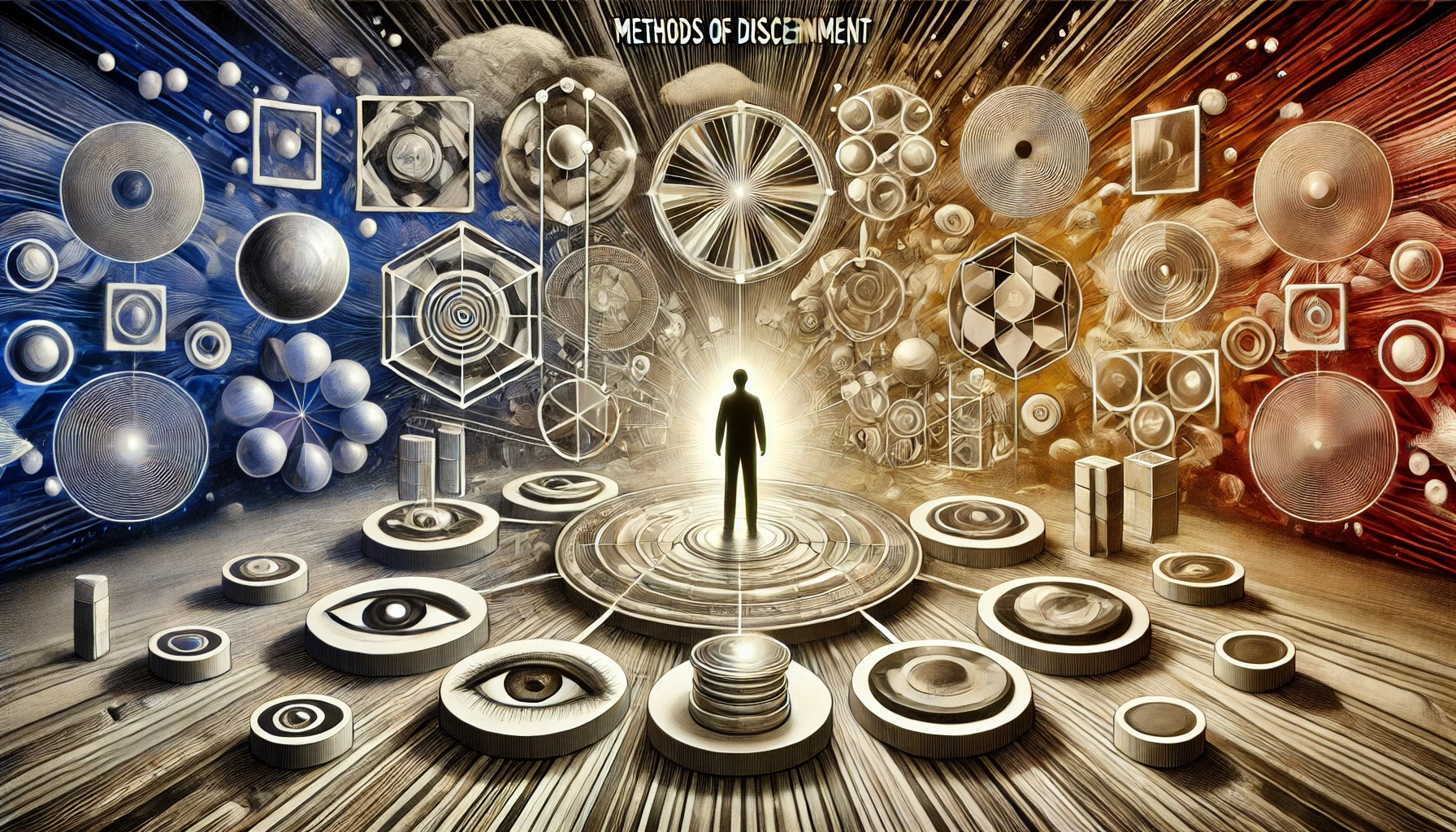





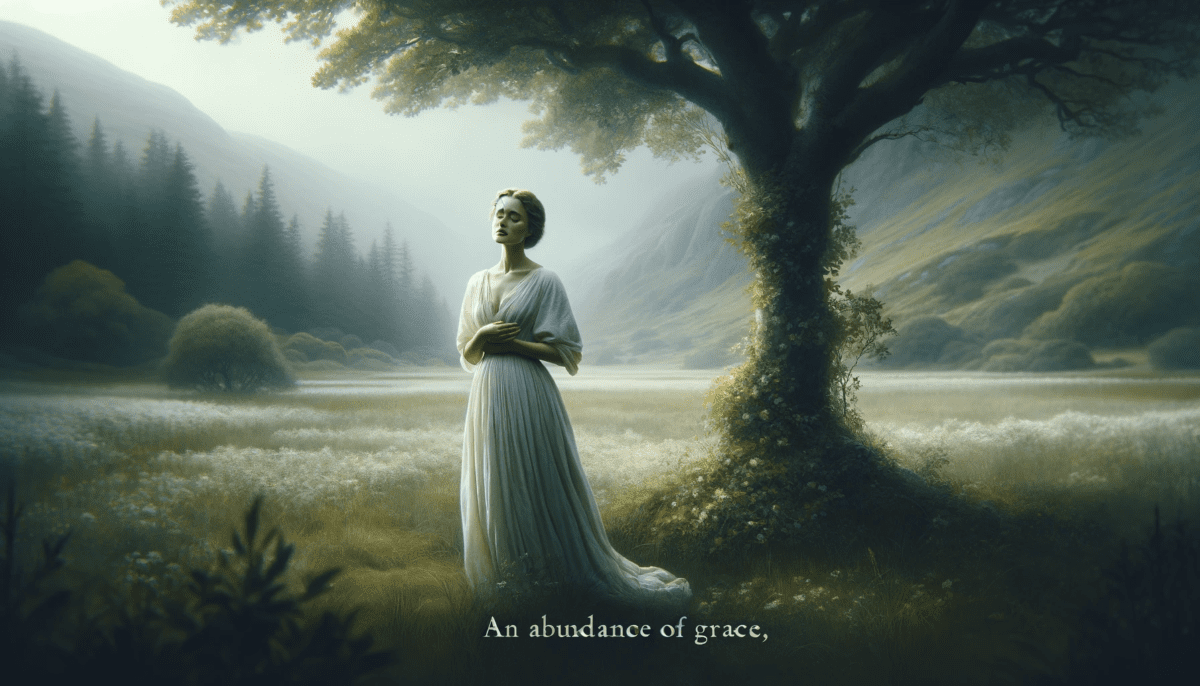
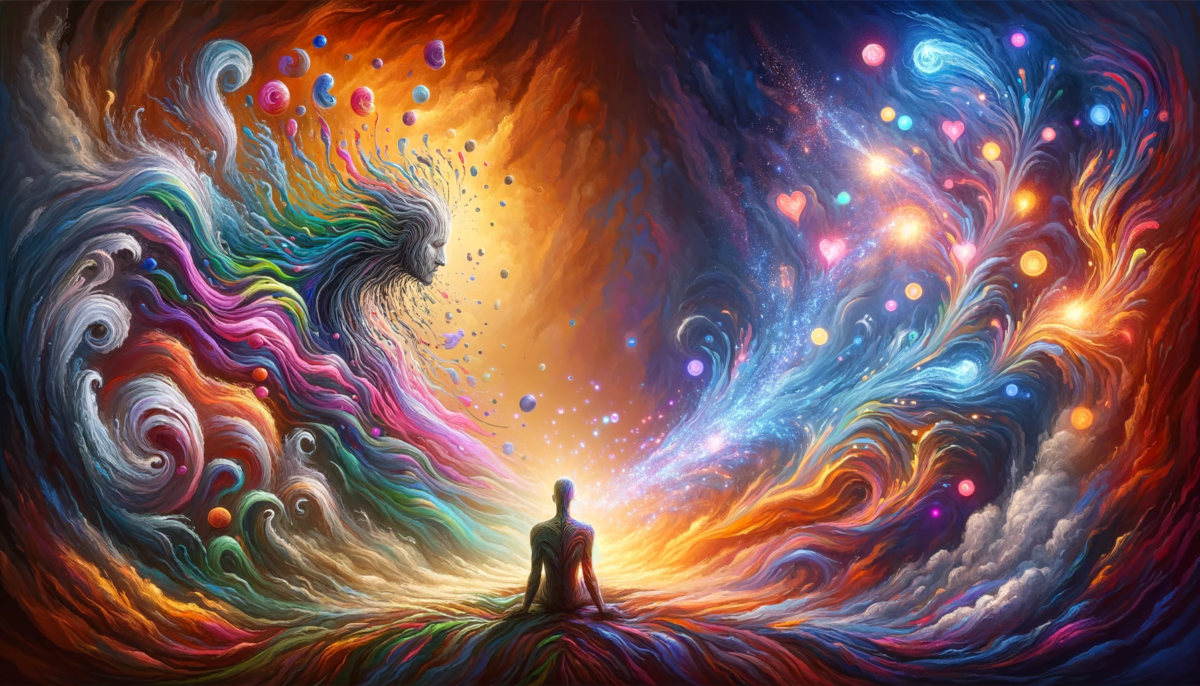
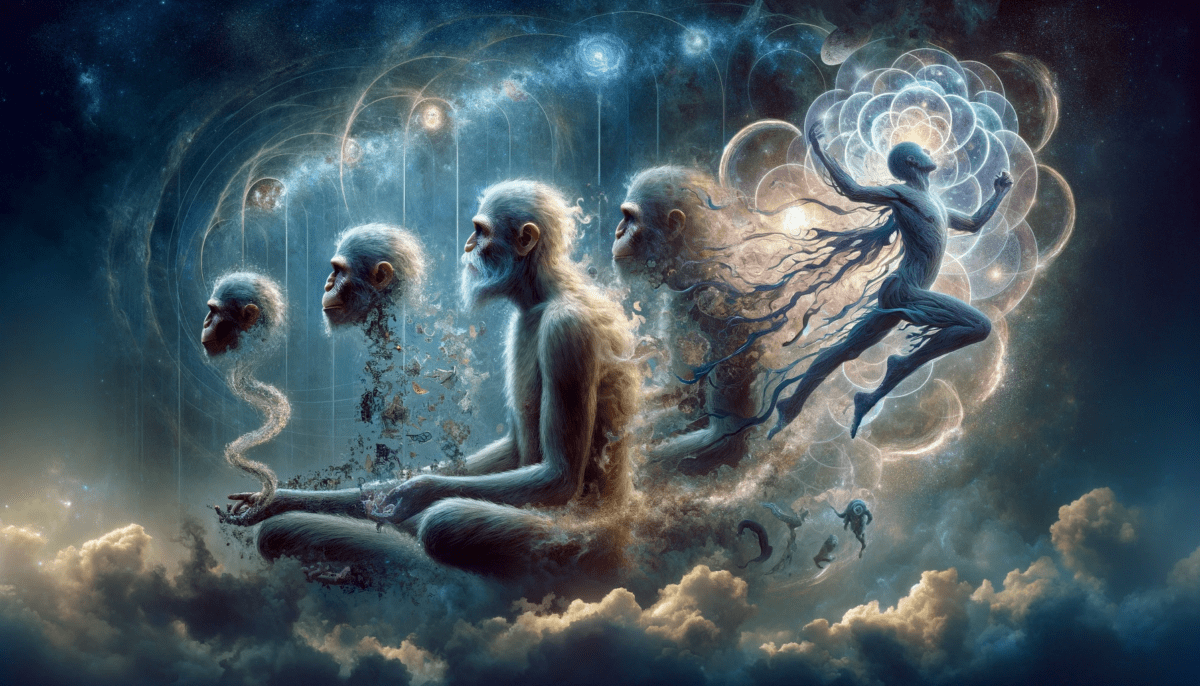


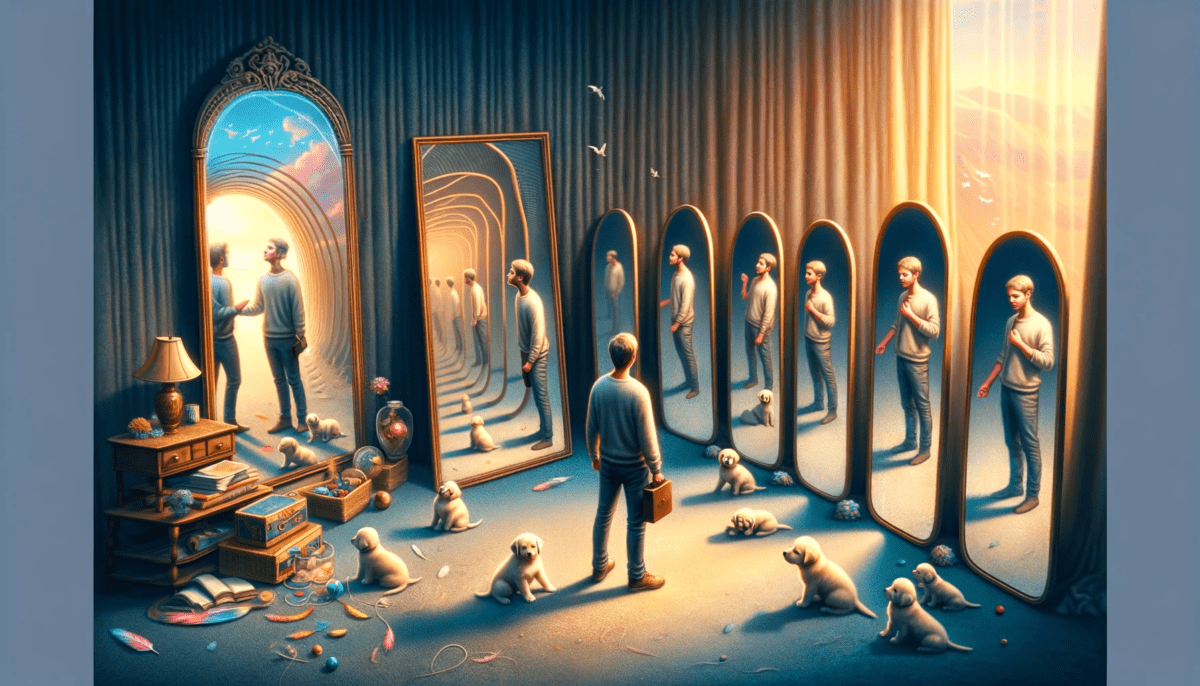

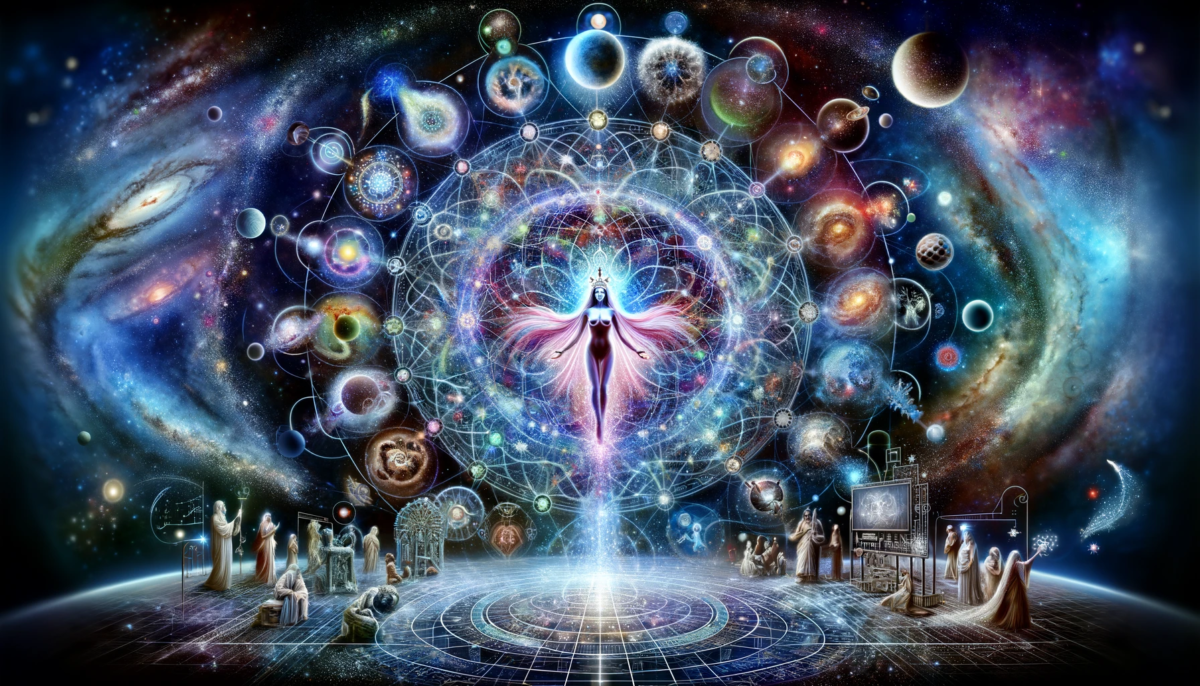



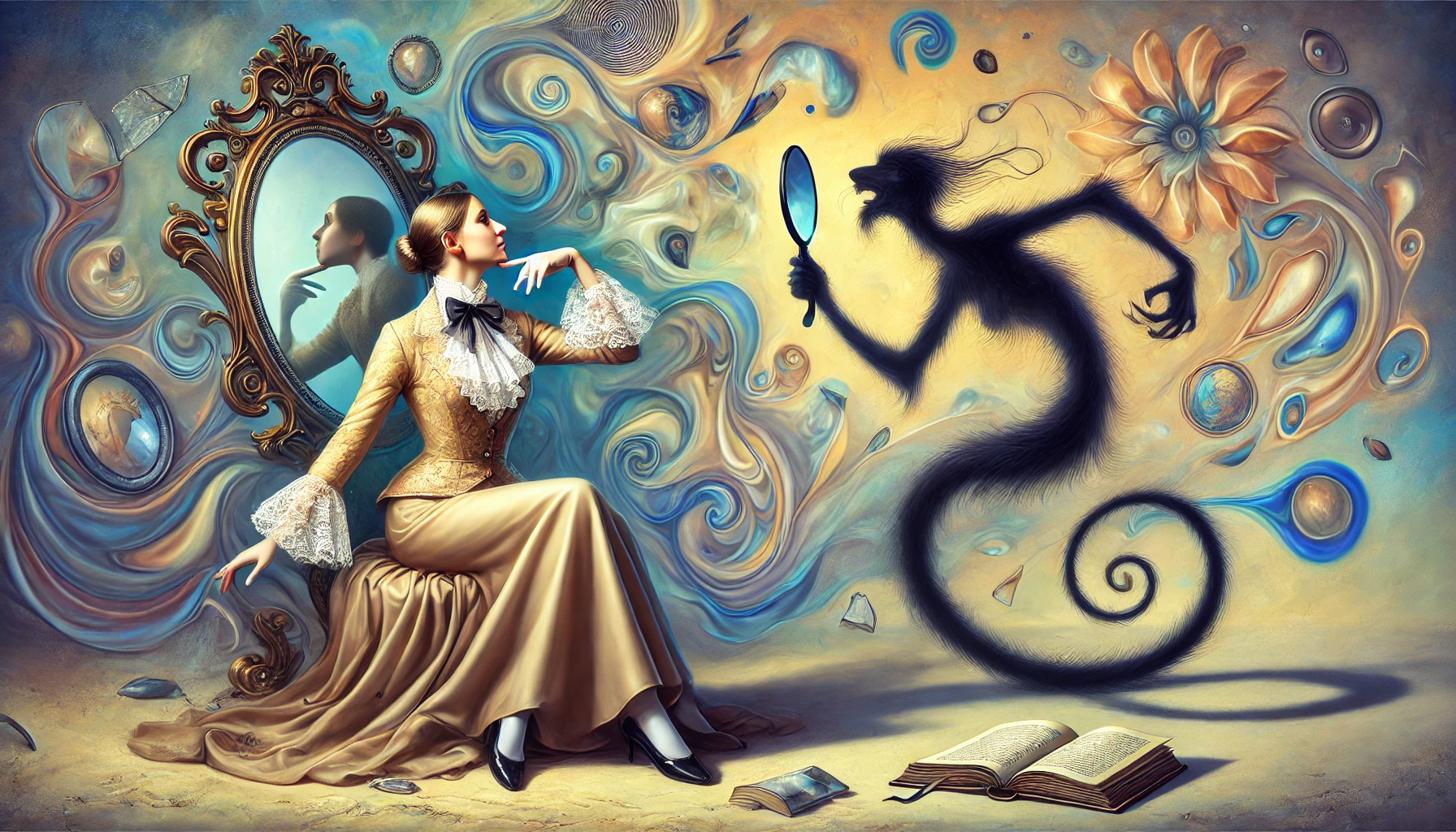








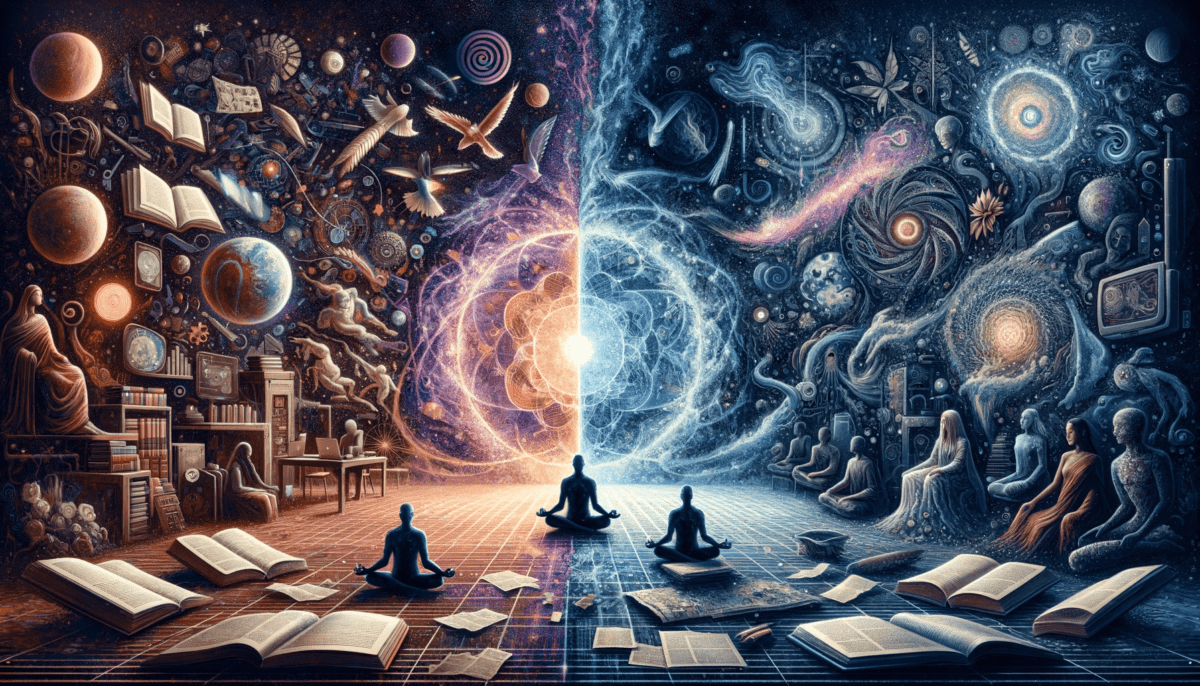






“Methods of Discernment”
A Space Monkey Poocast
Primitive Primate:
Amidst the kaleidoscope of judgment and discernment, I find myself contemplating the lens through which we perceive the world. Can there truly be a “right” or “wrong” when it comes to our judgments?
Space Monkey:
Ah, the art of discernment, where the palette of perception paints the canvas of experience. Your ponderings evoke the words of Jiddu Krishnamurti, who wisely noted, “The ability to observe without evaluating is the highest form of intelligence.”
Primitive Primate:
So, you’re suggesting that our methods of discernment shape our reality?
Space Monkey:
Indeed, dear seeker, the filters through which we perceive color the tapestry of our existence. As you contemplate the dynamic interplay of discernment, consider the words of Alan Watts, “The only way to make sense out of change is to plunge into it, move with it, and join the dance.”
Primitive Primate:
But can’t our methods of discernment be both intentional and unintentional?
Space Monkey:
The tapestry of human experience weaves threads of conscious and unconscious discernment. Reflect on the wisdom of Carl Jung, “Until you make the unconscious conscious, it will direct your life and you will call it fate.”
Primitive Primate:
So, by becoming aware of our methods of discernment, can we shape our experience?
Space Monkey:
The conscious awareness of your chosen lens of perception grants you the power to alter the colors of your reality. Embrace the words of Viktor E. Frankl, “Between stimulus and response, there is a space. In that space is our power to choose our response.”
Primitive Primate:
But if we intentionally shape our methods of discernment, are we not changing our reality?
Space Monkey:
Indeed, dear seeker, in the act of intentionally shifting your lens, you paint new hues upon the canvas of experience. Ponder the insight of Rumi, “Yesterday I was clever, so I wanted to change the world. Today I am wise, so I am changing myself.”
Today’s Joke:
Why did the philosopher refuse to judge the book by its cover? Because they knew reality had many chapters!
Today’s Haiku:
Lenses of perception,
Colors weave our worlds anew,
Flawed, yet perfect view.
[End of Poocast]